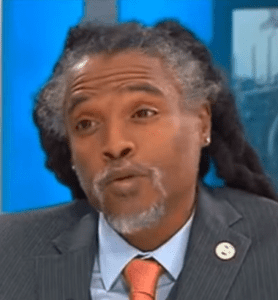The ongoing trade dispute between the U.S. Virgin Islands and the British Virgin Islands is a reminder of a deeper reality — one that neither side is truly addressing.

While headlines focus on tariffs, legislative amendments, and diplomatic spats, the real issue is that neither the USVI nor the BVI has true control over the economic policies that govern their future.
As a former Minister of State for External Affairs for the USVI and Secretary General of the Inter-Virgin Islands Council, I have worked on regional collaboration at the highest levels. I understand the complexities of economic interdependence between our two territories. But let’s be clear: this is not a battle between the USVI and the BVI — it is a battle against the limitations imposed by colonial status.
A Manufactured Conflict Over Trade
At the heart of the current dispute is the BVI’s decision to update licensing and fee structures for foreign-based charter companies, a move they argue will capture more revenue from a lucrative industry operating within their waters. The USVI, in response, has considered retaliatory tariffs, sparking diplomatic tension.
Gov. Albert Bryan Jr. has gone so far as to threaten to appeal directly to President Donald Trump should federal intervention become necessary. This is where the absurdity of our colonial reality becomes painfully clear:
- Neither the USVI nor the BVI controls its own external trade policy.
- Neither the USVI nor the BVI has the power to impose tariffs without external approval.
- Neither the USVI nor the BVI can independently negotiate economic agreements on equal footing with sovereign nations.
What we are witnessing is not a real economic dispute, but a colonial limitation masquerading as a trade war.
The legal opinion sought by USVI Sen. Kenneth Gittens confirms what we should already know: only the U.S. President can impose tariffs on behalf of the USVI. The very fact that our elected officials are engaged in a debate over a power they do not even possess is proof that our economic future is still dictated by decisions made outside of the Virgin Islands.
This is not sovereignty. This is not economic self-determination. This is what colonial status looks like.
Real Issues Require Real Solutions
Rather than escalating tensions with our Caribbean neighbors, we should be asking the right questions:
- Why is the USVI still in a position where it must rely on Washington, D.C. to make fundamental economic decisions?
- Why has there been no serious movement toward developing regional economic frameworks that benefit both the USVI and the BVI?
- Why is our leadership still reactive — responding to economic pressures rather than shaping the policies that affect our industries?
The USVI and the BVI should not be economic rivals in a zero-sum game. We should be economic partners, collaborating on a shared vision that removes foreign intermediaries from our decision-making processes.
This is why regional economic integration should be our priority, not retaliatory tariffs. A Virgin Islands Economic Partnership — where both territories coordinate tax and regulatory policies, develop cross-border trade agreements, and jointly invest in maritime infrastructure — would eliminate the need for these disputes altogether.
Rather than petitioning Washington or London, we should be building economic mechanisms that prevent either government from dictating our trade policies.
Advice to Gov. Bryan Jr.: Look Within, Not Abroad
Gov. Bryan, if you seek counsel, know that the Virgin Islands is rich with experienced voices and strategic minds. The wisdom needed to navigate this challenge exists right here at home — there should be no need to look elsewhere.
Virgin Islanders — our business leaders, economists, maritime industry experts, and former government officials — have the experience and foresight necessary to navigate this crisis. Before looking to Washington for intervention, we must first engage the wealth of expertise that exists within our own borders.
There is no shortage of people in this Territory with the knowledge to chart a path forward, but leadership must be willing to listen.
A New Vision for the Virgin Islands
The USVI and the BVI are not sovereign nations. We are economies without the economic power to shape our own destinies.
This trade dispute is not about licensing fees or tariffs. It is about whether we will continue to allow others to dictate our economic policies or whether we will begin to govern ourselves in a way that makes external intervention unnecessary.
We must move beyond colonial-era economic structures and build a future that ensures:
- Economic self-determination — so that our governments do not have to ask foreign powers for permission to enact policies that benefit our people.
- Regional economic integration — so that we strengthen our economies together, rather than fighting over limited resources.
- A long-term vision for the Virgin Islands — one that prioritizes collaboration, economic independence, and sustainable growth.
This is the conversation we need to be having. Anything less is just a distraction from the real work that must be done.
— Shelley Moorhead is a former Minister of State for External Affairs in the U.S. Virgin Islands and former Secretary General of the Inter-Virgin Islands Council. He has led high-level diplomatic engagements between the USVI and BVI and is an advocate for economic self-determination and regional cooperation in the Caribbean.





